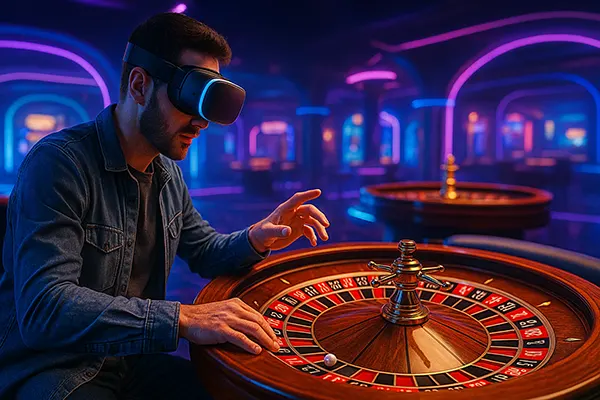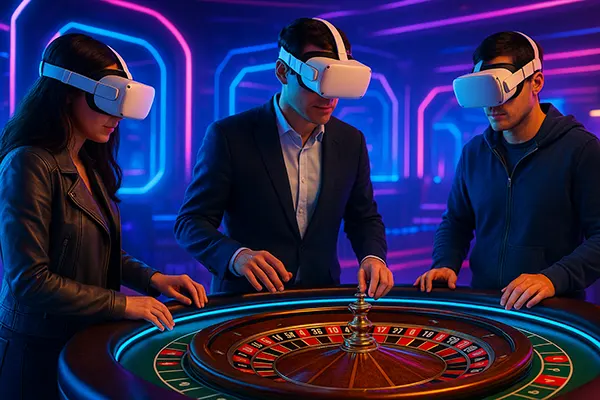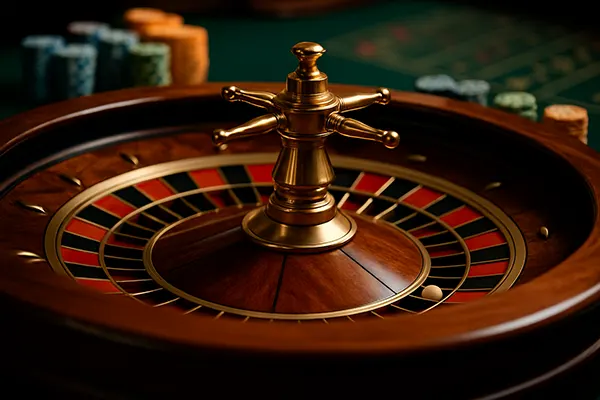
Virtual Reality (VR) and the Metaverse in Roulette: Future or Marketing Illusion?
Roulette has always been a symbol of classic casino gaming, but technological innovation is rewriting its rules. The integration of virtual reality (VR) and the emerging concept of the metaverse has introduced new ways to play, socialise, and experience gambling. Yet, a crucial question arises: are these digital advancements shaping the future of roulette, or are they simply marketing illusions designed to attract attention?
The Rise of Virtual Reality in Roulette
Virtual reality has brought a new dimension to roulette by transforming how players perceive the game environment. Unlike traditional online formats, VR roulette offers full immersion, allowing users to walk around a 3D casino, interact with objects, and communicate with other players through avatars. The atmosphere resembles that of a real gaming hall, complete with sound effects, lighting, and movement.
Major software developers like Evolution and Microgaming have already invested in early versions of VR roulette. Using VR headsets, players can observe the spinning wheel up close, follow the dealer’s gestures, and experience real-time motion tracking. This technology replicates the authentic dynamics of a physical table, providing a social experience that was previously absent from online gambling.
However, the adoption of VR roulette remains limited. While the concept attracts attention, the high cost of VR headsets and limited hardware compatibility make it accessible mainly to enthusiasts. The industry still faces the challenge of balancing innovation with affordability for a wider audience.
How the Metaverse Expands Roulette’s Potential
The metaverse goes beyond virtual reality, aiming to connect various online environments into a shared digital ecosystem. In this space, roulette becomes part of a broader social and economic network where users can own assets, interact freely, and even participate in community-run casinos. Blockchain technology often supports this model, ensuring transparent gameplay and verifiable outcomes.
Some developers have already begun experimenting with metaverse roulette lounges where players can use cryptocurrency wallets to join tables, buy custom avatars, and engage in tournaments. The presence of decentralised casinos in virtual worlds such as Decentraland or The Sandbox illustrates how gambling could evolve into a multi-layered social experience rather than a solitary pastime.
Nonetheless, regulation and data privacy remain significant obstacles. Legal frameworks for metaverse gambling are still developing, and jurisdictions differ in their approach to licensing, age verification, and financial transparency. Until these issues are resolved, large-scale expansion of metaverse roulette will face limitations.
The Technological Innovations Behind VR Roulette
The immersive design of VR roulette relies on several technological foundations. Motion tracking sensors, advanced 3D rendering, and real-time physics engines allow the virtual wheel, chips, and dealer to move naturally. Haptic feedback devices enhance realism by simulating tactile sensations such as chip weight or the vibration of the spinning wheel.
Cloud-based infrastructure plays a crucial role in maintaining stable performance and minimising latency. By processing graphics and data remotely, VR casinos can ensure smoother gameplay even on mid-range hardware. Furthermore, the integration of AI-driven dealers adds another layer of interaction by providing natural communication through voice recognition.
These innovations aim to make virtual roulette not only visually impressive but also reliable and responsive. Yet, as with any technological leap, the success of these systems depends on accessibility. Developers are focusing on optimising VR content for mobile devices and lower-cost headsets to make the experience available to a larger audience.
Real-World Applications and Player Experience
In practice, VR roulette offers a unique blend of visual authenticity and social engagement. Players can look around the virtual room, hear conversations, and place bets with gestures instead of clicks. This makes the game feel more organic and less mechanical, closely replicating the atmosphere of a physical casino.
Some casinos have begun hosting promotional events in VR spaces where players can join live-dealer sessions and compete in real time. These initiatives demonstrate the growing interest in hybrid gambling environments that merge digital convenience with human interaction. The format also opens the door to themed environments, from futuristic roulette lounges to historical replicas of Monte Carlo tables.
However, not every player seeks such immersion. Many prefer traditional interfaces that offer quick access, lower system requirements, and minimal setup. The challenge for developers is to provide both options — immersive VR tables for enthusiasts and streamlined versions for casual users.

Future Outlook: Innovation or Illusion?
The future of VR and metaverse roulette will depend largely on technological maturity, user adoption, and legal recognition. If developers manage to make the experience affordable and regulators establish clear frameworks, virtual environments could redefine how people perceive gambling entertainment. The potential for social interaction, customisation, and real-time engagement remains enormous.
Yet, some experts warn that the metaverse hype might outpace actual demand. Despite its visual appeal, the practicality of VR roulette still raises doubts regarding longevity, comfort, and accessibility. Marketing campaigns often exaggerate the benefits of virtual integration, portraying it as a revolution rather than an optional enhancement.
Ultimately, the truth likely lies in between. Virtual reality and the metaverse will not replace traditional roulette but will coexist alongside it. Their role will be to enrich the player’s experience rather than to redefine the essence of the game. As technology continues to evolve, roulette will remain a bridge between innovation and tradition, balancing digital creativity with the timeless thrill of chance.
The Balance Between Reality and Innovation
As 2025 unfolds, VR and metaverse applications in roulette continue to evolve cautiously rather than explosively. Developers are prioritising stability, user comfort, and ethical standards over rapid expansion. Sustainable innovation now focuses on data protection, fair play, and accessibility, aligning with international gambling regulations.
Whether VR roulette becomes a long-term success or fades as a niche experiment will depend on the industry’s ability to combine entertainment with responsibility. If handled correctly, virtual roulette could become a milestone for immersive technology, offering genuine value rather than short-term excitement.
For now, VR and metaverse roulette stand at a crossroads — one path leading toward meaningful transformation, and the other toward overpromised marketing spectacle. Time, investment, and regulation will determine which vision becomes reality.





